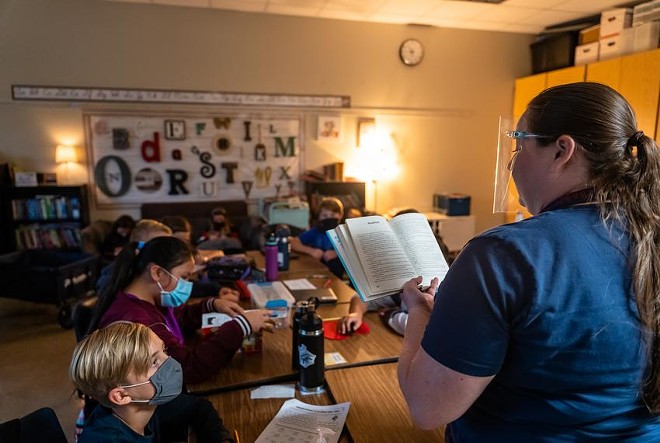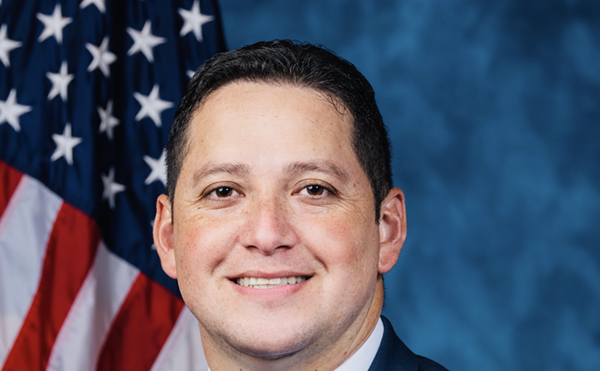
But now, as teachers attempt to restore all the learning lost by their students during the pandemic, the Texas Legislature has insisted those who teach grades K-3 need to jump another hurdle: they need to complete a 60-to-120 hour course on reading, known as Reading Academies, if they want to keep their jobs in 2023.
And they must do it on their own time, unpaid.
For many like 38-year-old Christina Guerra, a special education teacher in the Rio Grande Valley, the course requirement is the final straw and it is sending teachers like her and others out the door.
“I don't want to do it,” she said. “I refuse to, and if they fire me, they fire me.”
Course adds to teacher workload
In 2019, the Legislature wanted to improve student reading scores and came up with a requirement that teachers complete this reading skills course. Every teacher working in early elementary grades — kindergarten through third — along with principals, had until the end of the 2022-23 school year to complete it.
But then the pandemic hit, and now many teachers are deciding whether to complete it or call it quits.
Tina Haass, a math and science teacher in the Fort Bend Independent School District, often spends her weekends working her way through the course. After a long day of school, she doesn’t have the mental energy to get on a computer and move through the course’s seemingly endless sections.
“Luckily, I don't have any kids,” she said. “I can't imagine some of these teachers having families that they have to come home to — they have to cook, they have to take care of their children.”
This course takes at least 60 hours to finish, but in some cases teachers are taking up to 120 hours to complete it. Most teachers aren’t compensated for their time. Some districts are offering stipends, if there's room in their budget.
Exactly how many teachers who still need to take the course is unknown. According to a Texas Education Agency update, nearly 90,000 educators have either started or completed the course as of March 9. In the same agency update there is no mention of how many K-3 teachers still need to complete it. The TEA did not respond to questions about the required course or the looming 2023 deadline.
Teachers agree that improving reading outcomes is important as Texas struggles to meet reading proficiency assessments. In the latest National Assessment of Educational Progress, known as “The Nation’s Report Card,” less than one-third of fourth graders performed at or above proficient level and only one-quarter of eight graders performed at or above proficient level.
But the pressures of the pandemic have forced many teachers to reconsider whether to remain in the profession. From 2010 to 2019, the number of teachers certified in Texas fell by about 20%, according to a University of Houston report.
After recent reports of more teacher departures, Gov. Greg Abbott formed a task force to address teacher shortages.
But teachers and public education advocates alike believe the state should hold itself accountable for the teacher departures, especially when adding requirements that add to teacher workload.
“I just feel like a lemon just squeezing, squeezing, squeezing,” said Guerra, a special education teacher in La Joya Independent School District. “But there's no more, there's nothing that you squeeze out anymore. There's no more juice.”
Guerra plans to leave the profession at the end of the school year.
Course exceptions, workaroundsAs unforgiving as the deadline sounds, there have been a few curious exceptions.
The state has allowed districts to exempt art, health education, music, physical education, speech communication and theater teachers. But, there has been some confusion over whether or not teachers need an all-level certification in those subject areas to be exempt.
That extra certification allows teachers to teach early childhood education all the way to 12th grade. Meredith Connely, an elementary visual arts teacher in the Leander Independent School District, paid almost $200 and took an exam to receive her all-level certification.
“I’m seeing other people on my campus take it and it seems like it was $200 well spent, but I shouldn’t have had to pay,” Connely said. “My time has worth.”
The TEA clarified on Friday that the all-level certification is not needed. An Association of Texas Professional Educators survey of 975 K-3 teachers and administrators conducted last December, only 11 said they hold an all-level certification in one of the subjects that could be exempt. In that notice to educators this month, the Texas Education Agency seemed to suggest agency officials will consider ways to keep the Reading Academies course at 60 hours. Districts may also allow teachers to test out of the course.
And the TEA also informed K-6 teachers who have passed the The Science of Teaching Reading Exam that they can take a shorter version of the course. The TEA website used to say that teachers needed the all-level certification to be exempt and at least one TEA employee notified a teacher that they needed that certification.
Andrea Chevalier, a lobbyist with the Association of Texas Professional Educators, said the Reading Academies course is well-intentioned. They found that about 65% of teachers surveyed found the content to be valuable.
When Abbott’s teacher shortage task force meets, Chevalier said teachers’ concern about the Reading Academies course should be addressed. n the same survey by Chevalier’s group, nearly half of the educators reported that the course took more than 120 hours to complete. Only 18% said it took between 60 and 80 hours and 95% said they worked after hours or weekends to finish it.
More time for some, but still departuresHaass, the Fort Bend ISD teacher, said she feels like lawmakers who mandated this course didn’t consider the time and effort teachers would have to put into it. Haass, who teaches math and science, said there’s no logic behind her having to take this as she isn’t the one teaching children how to read.
“This is the hardest — I’m sorry — fucking job I’ve ever had,” she said.
Jessica Jolliffe, assistant director of humanities at Austin Independent School District, said most teachers in the district are working on the course on their own time, whether it be after school, weekends or winter break. The district did give teachers time on Jan. 4 to just work on the course.
While teachers would rather not do this on their own time, Jolliffe believes the course content has value and can help students with their reading skills.
Back in the Rio Grande Valley, Guerra said her decision to leave teaching after 14 years was really made in the last two because of all the interruptions and criticisms teachers have had to deal with during the pandemic. That’s what she says. Abbott’s task force needs to address.
Guerra outlines how she thinks teachers were treated badly these past few years. First, they were accused of not wanting to teach classes in person. Then, once teachers were back in the classroom, there were the accusations that teachers were teaching critical race theory.
“At this point, I feel like there's no coming back for teachers after all of that,” Guerra said. “And the Reading Academy is just a kick in the ass after being treated poorly for the past few years.”
Disclosure: Association of Texas Professional Educators and University of Houston have been financial supporters of The Texas Tribune, a nonprofit, nonpartisan news organization that is funded in part by donations from members, foundations and corporate sponsors. Financial supporters play no role in the Tribune's journalism. Find a complete list of them here.
The Texas Tribune is a nonprofit, nonpartisan media organization that informs Texans — and engages with them — about public policy, politics, government and statewide issues.
















